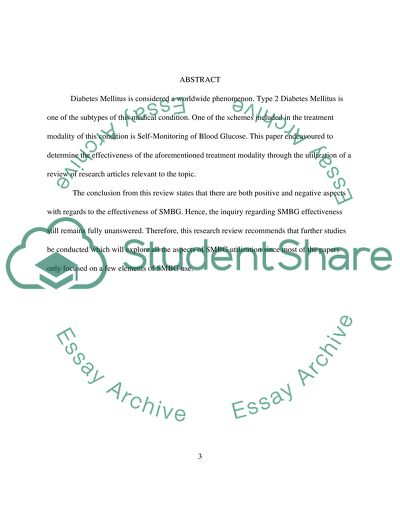Retrieved from https://studentshare.org/nursing/1394662-effectiveness-of-self-monitoring-of-blood-glucose-in-type-2-diabetes-mellitus
https://studentshare.org/nursing/1394662-effectiveness-of-self-monitoring-of-blood-glucose-in-type-2-diabetes-mellitus.


